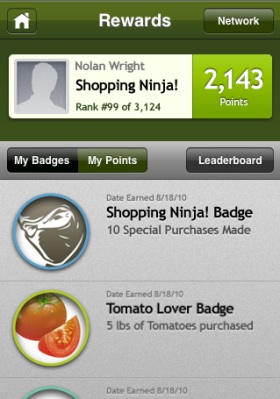PayPal Teams up with Appcelerator on Mobile Payments
At today’s PayPal developer conference, the company made two significant announcements that together add up to one thing: a credible attempt to dominate what could soon be a trillion-dollar market for mobile purchases.

The first announcement is that PayPal is partnering with Appcelerator, the second-largest publisher of apps on Apple’s App store, to offer developers easy integration of PayPal’s one-click payment solution. This means all of the 77,000 developers who already use Appcelerator for simplified cross-platform (iOS and Android) development will be able, for the first time, to drop the PayPal payment mechanism into their apps as easily as they drop in Apple’s own payment mechanism.
The second announcement is that, contra weeks of rumors for weeks, PayPal’s new big corporate partner is Facebook, not Google.
If you think developers raking in millions selling casual games on Apple’s App store is big business, try to imagine how much money will be spent via mobile phones when consumers start using them as a dominant payment mechanism for the other 97% of the money they spend each year. (Consumers spend on average $1,000 a year on ecommerce and $39,000 a year at physical stores.)
TechCrunch has called this phenomenon (turning phones into payment mechanisms for regular stores) mobile’s “Trillion Dollar Opportunity,” and in order to capture this market, paying for things within apps needs to be as dead-easy as it is to pay for the apps on Apple’s iOS devices (iPad, iPhone, etc.) themselves.
PayPal, which already has a network of millions of vendors, is looking to corner this market by becoming just such a one-click payment solution. They key, as Apple’s App store has revealed, is that consumers need a mechanism that requires them to enter their credit card information exactly once, on the day they sign up for the service, which is exactly what PayPal is attempting to do.

Even better, unlike every other player trying to compete with Apple, odds are you already have a PayPal account.
“The analogy here is to compare PayPal’s release of [the mobile payment library, which is now integrated into Appcelerator] to the original Facebook Connect SDK several years ago,” says Scott Schwarzhoff, VP of marketing at Appcelerator. “This time, instead of a social graph, we’re talking about a commerce graph. And the numbers are large – over 80 million [PayPal] commerce-related identities waiting to go mobile.”
To understand the power of an alternate payment mechanism, if it succeeds, check out this video from Appcelerator. The gist of it is that integration with Appcelerator will allow developers to, for example, build custom apps for grocery stores or chains that would target users with deals (think Groupon), reward them with game-like elements like badges (a la Foursquare and SCVNGR), build shopping lists, and allow users to make orders for groceries or other goods in advance via their phones - even paying for them within the app itself.
Left unexplored in Appcelerator’s announcement is its potential to allow publishers of news content to charge for their wares by some mechanism other than Apple’s, which exacts a steep 30% cut of sales.
Keep Reading
Most Popular
Large language models can do jaw-dropping things. But nobody knows exactly why.
And that's a problem. Figuring it out is one of the biggest scientific puzzles of our time and a crucial step towards controlling more powerful future models.
How scientists traced a mysterious covid case back to six toilets
When wastewater surveillance turns into a hunt for a single infected individual, the ethics get tricky.
The problem with plug-in hybrids? Their drivers.
Plug-in hybrids are often sold as a transition to EVs, but new data from Europe shows we’re still underestimating the emissions they produce.
Google DeepMind’s new generative model makes Super Mario–like games from scratch
Genie learns how to control games by watching hours and hours of video. It could help train next-gen robots too.
Stay connected
Get the latest updates from
MIT Technology Review
Discover special offers, top stories, upcoming events, and more.